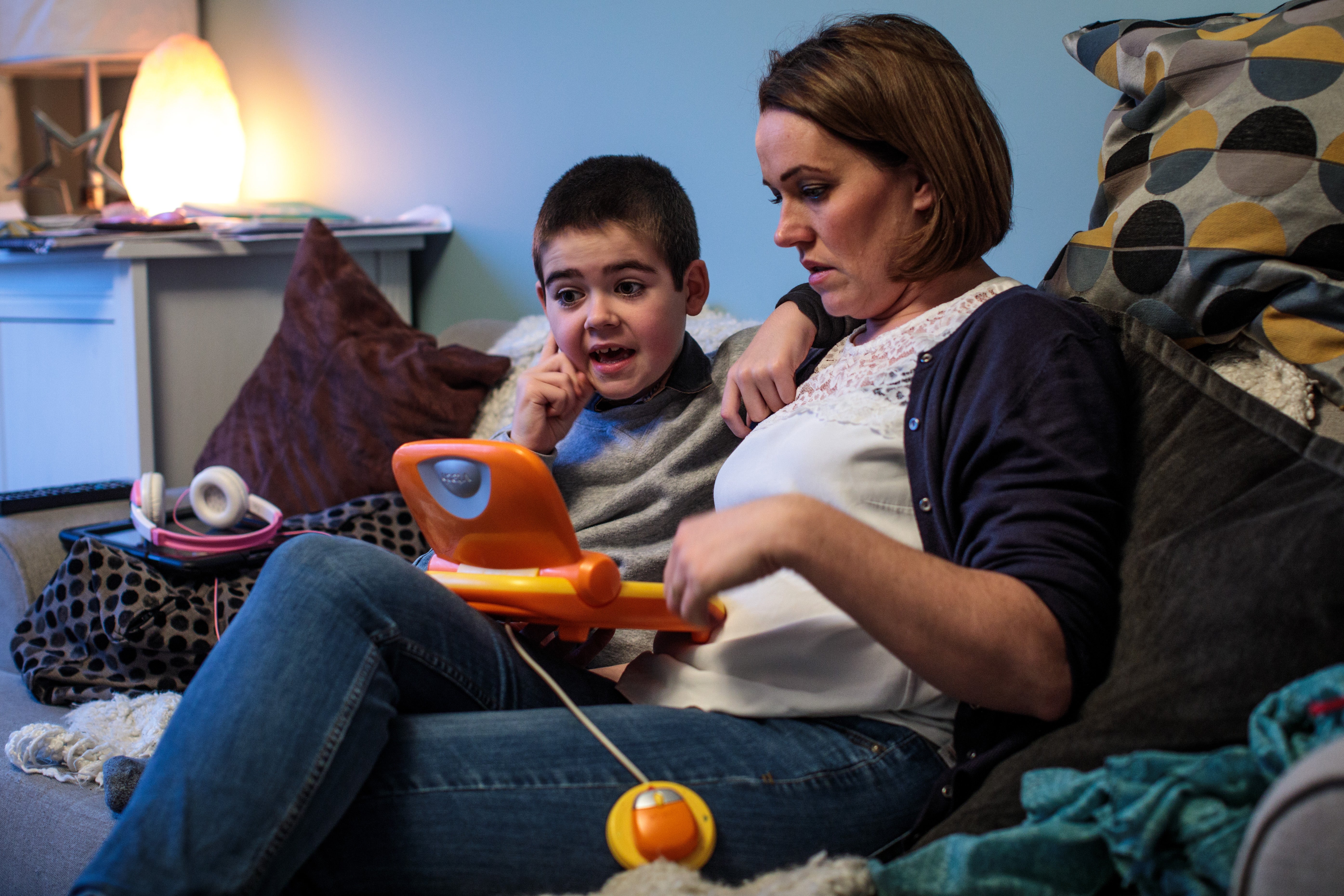Government working to ‘find a solution’ after Brexit halts medical drug supply for epileptic children
Supplies of prescribed medical cannabis set to run out in a matter of weeks, affecting up to 40 children

The government has said it is working urgently with Dutch authorities to “find a solution” after supplies of medical cannabis imported from the Netherlands were halted due to Brexit, endangering the lives of up to 40 children in the UK with severe epilepsy.
Supplies of the prescribed medication are set to run out in a matter of weeks, with one affected family saying they only learned of the policy change a fortnight before the Brexit transition ended at the turn of the new year.
Hannah Deacon, a prominent medical cannabis campaigner in the UK, has implored the government to reverse the decision and protect her nine-year-old son, Alfie Dingley, who suffers from a rare form of epilepsy.
She said she now has just six weeks' supply left of the Bedrolite oil on which Alfie depends to keep him free of seizures.
Dutch law prevents the export of certain medicinal cannabis products. Previously, products were allowed to be dispensed in the Netherlands under UK prescriptions.
However, the mutual recognition of prescriptions did not form part of UK-EU negotiations on reciprocal healthcare, meaning that certain medications, such as Bedrolite oil, can no longer be issued in the UK.
The government has come under fierce criticism over the move. Speaking on BBC Radio 4, Ms Deacon said she had appealed to the Department for Health and Social Care (DHSC) for help, only to be showed a "complete lack of understanding" regarding her son’s condition.
The DHSC initially said there was a range of alternative cannabis-based medicines available to UK patients, but has since vowed to take action amid the mounting pressure.
A government spokesperson told The Independent: “We sympathise with patients dealing with challenging conditions and we are working urgently with the Dutch government to find a solution which will enable patients to access the medications they need.”
Ms Deacon said she only learned of the medication ban by chance after a letter was sent to stakeholders in the medical cannabis sector on 15 December.
"I was told because someone who knew me was told about this letter, which is utterly disgraceful in itself. The lack of notice is disgraceful also," she said on Wednesday.
"When we have appealed to the Department of Health they said to us in writing they understand it is concerning but there are other products available, so we should swap products, which shows a complete lack of understanding of refractory epilepsy, a complete lack of empathy.
"Every cannabis product has slight changes in it depending on the plant used to grow it. My son benefits from Bedrolite because of the quality of the product.
"If we move him to another product there is no guarantee that he is going to be safe. That is very dangerous."
She appealed to Boris Johnson to take up the issue with the Dutch authorities so that supplies of the oil could resume.
"We hear every day he (Mr Johnson) wishes to save lives due to coronavirus. He has it in his power today to save my son's life and 40 other children who are on this medicine," she said.
"I want him to show that he wants to talk to the Dutch authorities to find a solution for us and not just to try to brush us under the carpet like we don't matter."
According to campaigners, up to 40 children with severe epilepsy in the UK are dependent on Bedrolite oil. Some mothers have reported travelling back and forth to the Netherlands to source private prescriptions of the medication, spendings thousands in the process.
Addressing the different range of alternative cannabis-based medicines available to UK patients, a DHSC spokesman said: "The decision on what treatments to prescribe for patients is rightly one for clinicians to make, on a case-by-case basis and dependent on the specific needs of the individual.
"If patients have any concerns, they should discuss them with their doctor."
Subscribe to Independent Premium to bookmark this article
Want to bookmark your favourite articles and stories to read or reference later? Start your Independent Premium subscription today.

Join our commenting forum
Join thought-provoking conversations, follow other Independent readers and see their replies